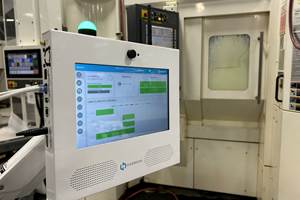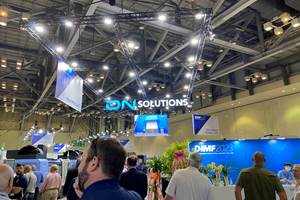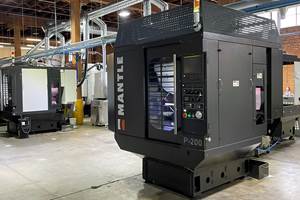Don't Let Job Losses Erode Skills And Knowledge
Global competition has hit manufacturing companies hard. As many struggle for survival, overall manufacturing employment in the United States has dropped by 3 million jobs since 1998.
Share




Global competition has hit manufacturing companies hard. As many struggle for survival, overall manufacturing employment in the United States has dropped by 3 million jobs since 1998. There has been a lot of debate and discussion about the reasons for the job losses, and off-shoring (to China in particular) is being characterized as the main culprit.
While much of the focus of public concern has been on how to stop manufacturing job losses through adjustments in trade policies, taxes and other government-led solutions, there has been less focus on maintaining and increasing the invaluable skills within the U.S. workforce.
The real costs of off-shoring should be measured not only by the loss of the jobs themselves, but also by the loss of the skills and knowledge that go along with them. When products are no longer made in the United States, the skills necessary to make them will disappear. Resurrecting those skills is often impossible.
Ironically, as manufacturers fight for survival by trimming their budgets, it's often the training budgets that get hit first. That is more than disappointing; it's foolhardy. The skills, expertise and knowledge of our people are our nation's greatest resources and assets. We can't lose sight of that now, especially when we need to preserve, nurture and expand that expertise more than ever.
Research and development spending by manufacturers also slows when the jobs needed to fund that spending have gone away. It's important to recognize that manufacturing currently supports about two-thirds of all of the nation's research and development. Put the brakes on R&D investment—the development of new knowledge and advanced technologies—and we're also putting our nation's economic growth and leadership at risk.
So what can manufacturing companies do?
Well, let's consider where the United States should focus its skills development. The lowest-skilled jobs, making low-value, mass-produced items, are mainly the ones that have moved off-shore. They probably won't come back, so we need to accept that and stop beating ourselves up about it.
For us to remain competitive, we need to embrace ingenuity and rely on our traditional strengths of technological innovation. This means continuing to apply advanced technologies and processes to improve our core manufacturing operations through leading-edge techniques such as high speed machining, micromachining and hydroforming. It also means continuing to learn about and apply the most advanced materials to manufacture the lightest and strongest components possible. Finally, it means developing familiarity and expertise in emerging technologies such as alternative energy, nanotechnology and biotechnology. Our focus should be on preparing our nation's workforce with the skills necessary to develop new supply-chain opportunities, new industries and new capital-generating technologies.
It's probably no surprise that I feel passionate about this. The Society of Manufacturing Engineers (SME), of which I'm proud to serve as 2004 president, is the world's leading resource of information, education and networking for manufacturing professionals and companies.
Our goal is to help manufacturing practitioners expand their skills and knowledge. Our information resources and events reach a half-million people and hundreds of organizations every year. We recently restructured our technical activities to provide even more information resources, networking and learning opportunities for individuals interested in every area of the manufacturing enterprise. Our new "Technical Community Network" includes opportunities for manufacturing practitioners to share their best practices in core manufacturing areas and learn to apply lean manufacturing, quality improvement and supply-chain management techniques, and much more. Special technical groups focused on emerging technologies, including alternative energy, are vehicles for manufacturers to learn from each other through ongoing dialog that is available 24/7.
By maintaining a competitive edge through our knowledge and expertise, SME (and our nation) will keep manufacturing viable. More importantly, we will go beyond merely reacting to global threats and begin to lead and shape the future of global manufacturing.n
Richard C. Peters is chief manufacturing engineer at The Timken Co. in Bucyrus, Ohio. He encourages manufacturers to build their knowledge base by joining SME. For more information, visit (www.sme.org/join) or call (800) 733-4763.
Related Content
Can Connecting ERP to Machine Tool Monitoring Address the Workforce Challenge?
It can if RFID tags are added. Here is how this startup sees a local Internet of Things aiding CNC machine shops.
Read MoreDN Solutions Responds to Labor Shortages, Reshoring, the Automotive Industry and More
At its first in-person DIMF since 2019, DN Solutions showcased a range of new technologies, from automation to machine tools to software. President WJ Kim explains how these products are responses to changes within the company and the manufacturing industry as a whole.
Read MoreIn Moldmaking, Mantle Process Addresses Lead Time and Talent Pool
A new process delivered through what looks like a standard machining center promises to streamline machining of injection mold cores and cavities and even answer the declining availability of toolmakers.
Read MoreManufacturing Madness: Colleges Vie for Machining Title (Includes Video)
The first annual SEC Machining Competition highlighted students studying for careers in machining, as well as the need to rebuild a domestic manufacturing workforce.
Read MoreRead Next
Building Out a Foundation for Student Machinists
Autodesk and Haas have teamed up to produce an introductory course for students that covers the basics of CAD, CAM and CNC while providing them with a portfolio part.
Read MoreRegistration Now Open for the Precision Machining Technology Show (PMTS) 2025
The precision machining industry’s premier event returns to Cleveland, OH, April 1-3.
Read MoreSetting Up the Building Blocks for a Digital Factory
Woodward Inc. spent over a year developing an API to connect machines to its digital factory. Caron Engineering’s MiConnect has cut most of this process while also granting the shop greater access to machine information.
Read More




















.jpg;maxWidth=300;quality=90)










